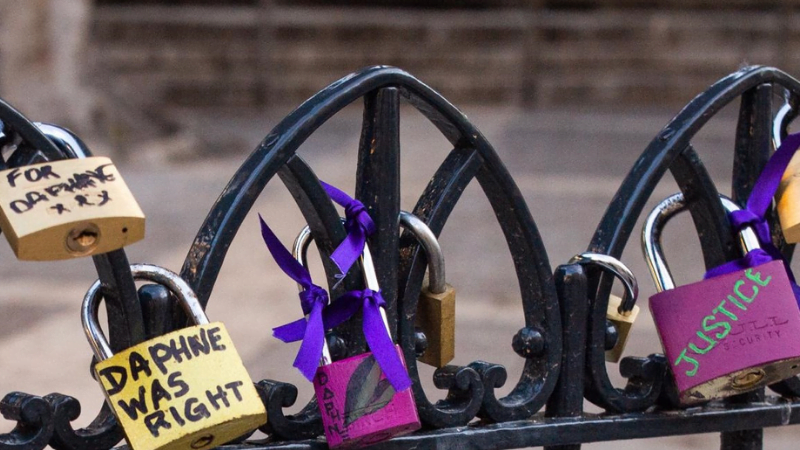There is a distinct lack of awareness among decision makers about how bad the situation is for journalists reporting on corruption, according to Index on Censorship’s Mapping Media Freedom project that monitors violations against media professionals throughout Europe.
For their work, investigative reporters have come under threat from multiple sources with the shared aim of stopping information that’s in the public interest from coming to light.
The Mapping Media Freedom project recorded 206 cases of investigative journalists in the 35 countries that are in or affiliated with the European Union (EU35) being targeted in their line of work between 1 May 2014 and 31 December 2018.
The project features three reports on threats to The Shift News in its first year of operation.
An additional 77 reports from EU35 showed media workers other than investigative journalists being targeted for their role in reporting on corruption.
The report notes that the assassination of independent Maltese investigative journalist Daphne Caruana Galizia in a car bomb on 16 October 2017 marked a dark new trend emerging in the EU35: the murder of three investigative journalists in less than 12 months.
Caruana Galizia’s death was followed by the murder of Slovakian journalist Ján Kuciak and his partner Martina Kušnírová on 26 February, 2018, and the rape and murder of Bulgarian journalist Viktoria Marinova on 6 October, 2018. Authorities say Marinova’s death is not connected to her being a journalist, a claim some colleagues have disputed.
There is a marked contrast in the reactions to the deaths of Caruana Galizia and Kuciak in Malta and Slovakia, the report notes.
In Slovakia, Kuciak’s death acted as a tipping point, prompting mass protests and causing politicians to resign. The culture minister stepped down following the murder and later left the ruling party.
This did not happen in Malta, where calls for justice were marked by the government blocking a public monument to deny public access, and where the Justice Minister ordered government workers to work overtime to clear any flowers and candles placed by citizens in the dead of night, on almost a daily basis.
Malta’s investigative journalists have also been ostracised and vilified. Politicians and businesses use lawsuits, public relations and innuendo to ridicule and sow doubt about reportage, as highlighted in the summer 2018 issue of Index on Censorship magazine.
“What do criminals, corrupt corporations and crooked politicians have in common? They all fear investigative journalists, whose job is to expose wrongdoing and hypocrisy by holding the powerful to account,” according to the report that looked into 283 incidents in which investigative journalism was a factor.
Under-financing and business models that don’t offer proper support are major problems for investigative journalism in general, but Mapping Media Freedom has also uncovered a litany of methods that have been employed as a direct means to censor journalists.
These include intimidation (96 instances), defamation (53), laws or court orders curtailing media outlets or workers (48), psychological abuse (35) and blocked access (48). Media workers were also physically attacked on 28 occasions and had their property attacked on 28.
Civil lawsuits were taken against journalists on 27 occasions, and criminal charges were brought against journalists on 23.
The country with the largest share of reports was Italy (40), followed by Hungary (25), Serbia (24), France (19) and Turkey (18).
Violations of media freedom regarding investigative journalists and those reporting on corruption reported to Mapping Media Freedom per annum went from a low in 2014 of 38, to a high of 75 last year.
Mapping Media Freedom’s numbers reflect only what has been reported to the platform: “We have found that journalists under-report incidents they consider minor, commonplace or part of the job”.
Index on Censorship first and foremost recommends that all charges against investigative journalists who have been arrested, imprisoned or who are facing legal action must be dropped.
Laws designed to impinge on the work of investigative journalists must be reconsidered, and stronger provisions put in place so the right to access to information is respected.
Governments must respect the right of journalists to protect confidential information and sources. “This is vital, especially in cases involving whistleblowing in the public interest,” the report states.













